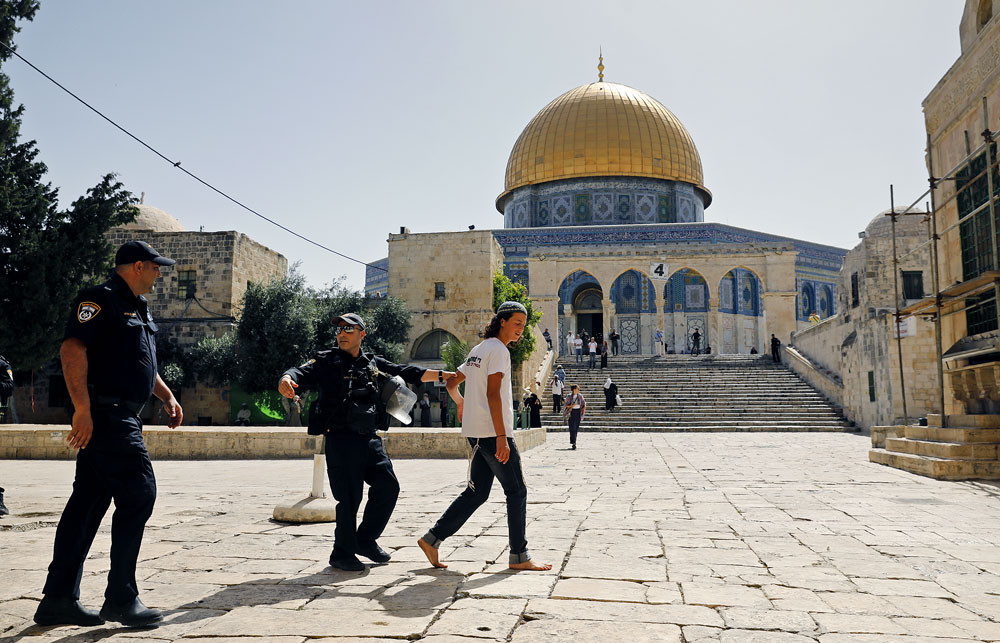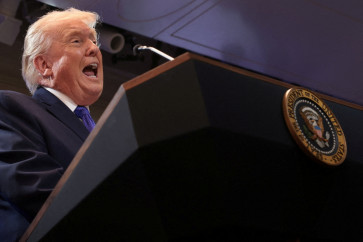Popular Reads
Top Results
Can't find what you're looking for?
View all search resultsPopular Reads
Top Results
Can't find what you're looking for?
View all search resultsAl-Aqsa compound: Jerusalem's flashpoint holy site
The unrest came as worshippers flocked there for the last Friday prayers of Ramadan.
Change text size
Gift Premium Articles
to Anyone
T
he Al-Aqsa mosque compound in Israeli-annexed east Jerusalem has been the scene of clashes since Friday between Israeli police and Muslim worshippers.
The unrest came as worshippers flocked there for the last Friday prayers of Ramadan.
The compound in the walled Old City is a highly sensitive site sacred in both Islam and Judaism.
Ancient temples, night journey
The 14-hectare (35-acre) rectangular esplanade at the southeast corner of the Old City was seized by Israel during the 1967 Six-Day War, along with the rest of east Jerusalem which was later annexed in a move never internationally recognised.
Israel considers all of Jerusalem as its undivided capital, but the Palestinians want the eastern sector as the capital of their future state.
Known to Muslims as Al-Haram al-Sharif (the Noble Sanctuary), the compound houses the famous golden Dome of the Rock shrine and Al-Aqsa mosque.
Believed to be where the Prophet Mohammed made his night journey to heaven, it is the third-holiest site in Islam after the Grand Mosque in Mecca and the Prophet's Mosque in Medina, both in Saudi Arabia.
The compound in its current form was built in the seventh century by Islam's second caliph, Omar, on the site of the Second Jewish Temple that was destroyed by the Romans around 70 AD.
The esplanade is also revered as the holiest site in Judaism because it housed both the First and Second Temples. In Hebrew, it is referred to as Har HaBayit -- the Temple Mount.
History of clashes
Jews are allowed to visit the compound, but are forbidden from praying there for fear of sparking tensions with Muslim worshippers.
Most, however, do not enter the area as Israel's chief rabbinate says that visiting it is forbidden under Jewish law due to issues of ritual impurity.
Today, the holiest site at which Jews can pray is the Western Wall -- among the last remnants of the Second Temple.
But ultra-nationalist Jews, some of whom want to begin building a Third Temple, regularly visit the esplanade where they can sometimes be seen praying discreetly.
This frequently creates tensions with Muslim worshippers who fear Israel will seek to change rules governing the compound, which is now administered by Jordan in coordination with the Palestinians.
Israeli police monitor visitors entering through the Mughrabi Gate, the only entrance for non-Muslims, but have several times set foot inside the mosque following tensions, further vexing Muslims.
There have regularly been tensions at the site.
In 1929, deadly riots broke out during the British mandate, with Muslims rallying to defend the site.
In 1996, an Israeli decision to open a new entrance to the west of the plaza sparked clashes that left more than 80 people dead in three days.
And a controversial visit to the plaza in September 2000 by then right-wing opposition leader Ariel Sharon was one of the main triggers for the second Palestinian intifada, which lasted from 2000 to 2005.
In July 2017, the compound was temporarily closed after three Arab Israelis opened fire at Israeli police near the site, killing two of them, before fleeing into the sacred compound, where they were shot dead by security forces.
In 2020 access to the compound was closed to the public during the month of Ramadan due to the Covid-19 pandemic and the reopening was subject to strict sanitary conditions with a limit on the number of worshippers.










